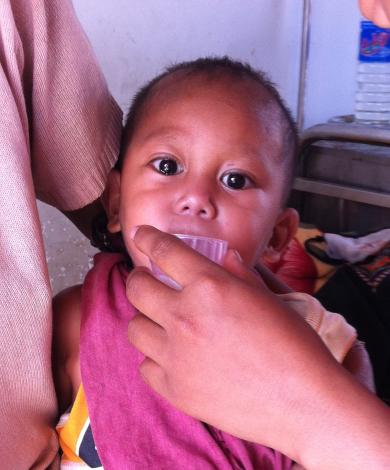Background
Acute malnutrition is a life-threatening condition affecting approximately 60 million children globally at any point in time. This caseload comprises approximately 20 million children aged below 5 years with SAM and 40 million under-five children with MAM. Children with SAM have a nine times greater risk of dying than well-nourished children and children with MAM have a three times higher risk of dying. This is a problem of global public health signifcance and one set to escalate.
Over the past 12 years, CMAM programmes have been implemented to varying degrees of scale in over 65 countries. Estimates suggest that 2 million out of an estimated 20 million SAM cases are now being treated. While this is a signifcant increase in SAM treatment, it represents just 10% of the global SAM burden. MAM treatment, however, has often not kept pace with the scaling up of SAM treatment.
There has been little concrete discussion around the degree to which different governments can afford to finance programmes to treat and prevent acute malnutrition and there are no current estimates for the external (donor and private) resources required for scale up globally.
The review aims to address these issues following an international conference on CMAM co-hosted by the Government of Ethiopia and the ENN in Addis Ababa in 2011. At this four day event, government representatives from 24 African and Asian countries shared their experiences of CMAM scale up and highlighted the challenges they face with current financing arrangements in terms of resource predictability and sustainability.
Project summary
This is a review of the donor and government financing arrangements for the scale up of programmes to address acute malnutrition through Community-based Management of Acute Malnutrition (CMAM). This review considers the enabling and constraining aspects of humanitarian, transition and development financing, the contexts and rationale in which severe acute malnutrition (SAM) and moderate acute malnutrition (MAM) are jointly addressed in CMAM programming; the role of key United Nations (UN) agencies in enabling programme integration and coordination; individual donor policies and strategies for supporting CMAM in emergency, transition and development contexts; and opportunities for achieving greater impact of efforts to manage acute malnutrition. The review involved country case studies from Kenya, Ethiopia, Malawi and Nigeria (developed based on interviews with government and other stakeholders, plus review of essential documents); in-person and telephone interviews with donors, UN agencies and foundations involved in CMAM financing, programming and research; grey literature review; and donor feedback (CIDA and Irish Aid) on findings.
Key resources
- The management of acute malnutrition at scale: A review of donor and financing arrangements (2013) [ODI has published an edited version available online.]


